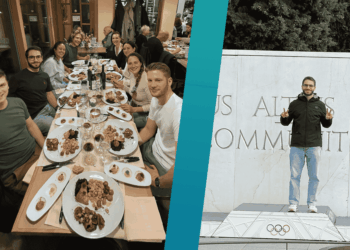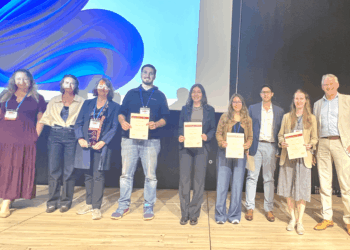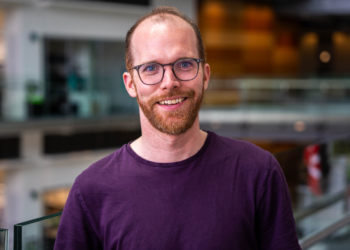EACR Travel Fellowships are co-sponsored by Worldwide Cancer Research and provide funds up to €3,000 to early-career cancer researchers. For more information on how to apply for Travel Fellowships, you can visit the EACR website.
Name of the project: “High resolution identification of Insulin Receptor and c-Met interaction in the caveolae of membrane”
Home Institution: Izmir Biomedicine and Genome Center, Izmir, Turkey
Host Institution: Weatherall Institute of Molecular Medicine, University of Oxford, Oxford, United Kingdom
Dates of visit: 01 November 2017 – 23 December 2017
Liver cancer is the second most common cause of cancer-related deaths worldwide and hepatocellular carcinoma (HCC) is the most common type of liver cancer. Unfortunately, due to late diagnosis and acquired drug resistance, the survival rate is relatively low. Therefore, significant effort is needed to improve therapeutic options, identify surrogate markers and overcome drug resistance. Obesity is one of the major risk factors for the development and progression of HCC and obesity-related hyperinsulinemia and hyperglycemia are important prognostic factors.
As a PhD student who is passionate about metabolism, I am interested in finding a mechanistic explanation for the contributing effect of obesity to HCC development and drug resistance. During my PhD studies, I carried out an approach investigating the direct effect of hyperglycemia and hyperinsulinemia on receptor interaction and crosstalk, facilitating ligand-independent activation and stabilising special receptor tyrosine kinases that are localised in specific compartments in the membrane. Although the heterodimerisation and trans-activation was previously shown in our laboratory in iBG, it was not clear how this process is regulated at the nanoscale in the membrane. At this point, we met Prof. Christian Eggeling’s group who organized the Cellular Imaging Techniques Course in Izmir and gained new insight to visualise nanoscale dynamics of receptor crosstalk, using advanced imaging techniques. Since Eggeling group has a recognised expertise in the field of super-resolution microscopy and was very open to forge new collaborations, I could not think of a better lab to visit to conduct my advanced-imaging studies.
The EACR travel fellowship allowed me to spend two months in the University of Oxford to have the proficiency with advanced laser scanning confocal microscopy and single molecule fluorescence correlation spectroscopy. After completing the mandatory training, I started working in the lab with cloning and later the imaging experiments. After induction time and transient expression optimisation studies were completed, it was very exciting to visualise changes in receptor dynamics in real time. Not only it is difficult to get scientifically valuable figures, but also processing and interpreting them correctly requires high expertise.
Indeed, I would like to thank all Eggeling lab members for creating such a warm environment and making me feel like a part of the lab from the first day. It was an amazing experience working with them.
At this moment, I feel very lucky to have Dr. Erdinç Sezgin by my side, who works as a post-doctoral researcher in Eggeling lab, helping me with everything (literally, starting from filling out the bureaucratic documents to teaching how to analyse and present my data).
Indeed, I would like to thank all Eggeling lab members for creating such a warm environment and making me feel like a part of the lab from the first day. It was an amazing experience working with them.
The imaging experiments provided us with great insights and of course opened up new avenues for the future of our project. The biochemical data we produced at iBG combined with the biophysical data we produced in Oxford and in-vivo experiments I will carry out this year will help us to enlighten this mechanism and we believe that this study will be published in a high-ranked journal.
Besides working in the lab, I had the chance to discover Oxford and London, seeing wonderful musicals, visiting pubs and trying various ales, enjoying the parks, joining Christmas parties, I even had the chance to watch the New Year’s fireworks live in London-which was on my bucket list. I loved every moment of my visit and enjoyed it very much, both scientifically and culturally.
Finally, I am greatly thankful to the EACR for helping me realise my project and creating such a good opportunity for young scientists. I am also thankful to Prof. Christian Eggeling, Dr. Erdinç Sezgin and all the group members for hosting me and providing invaluable support.









